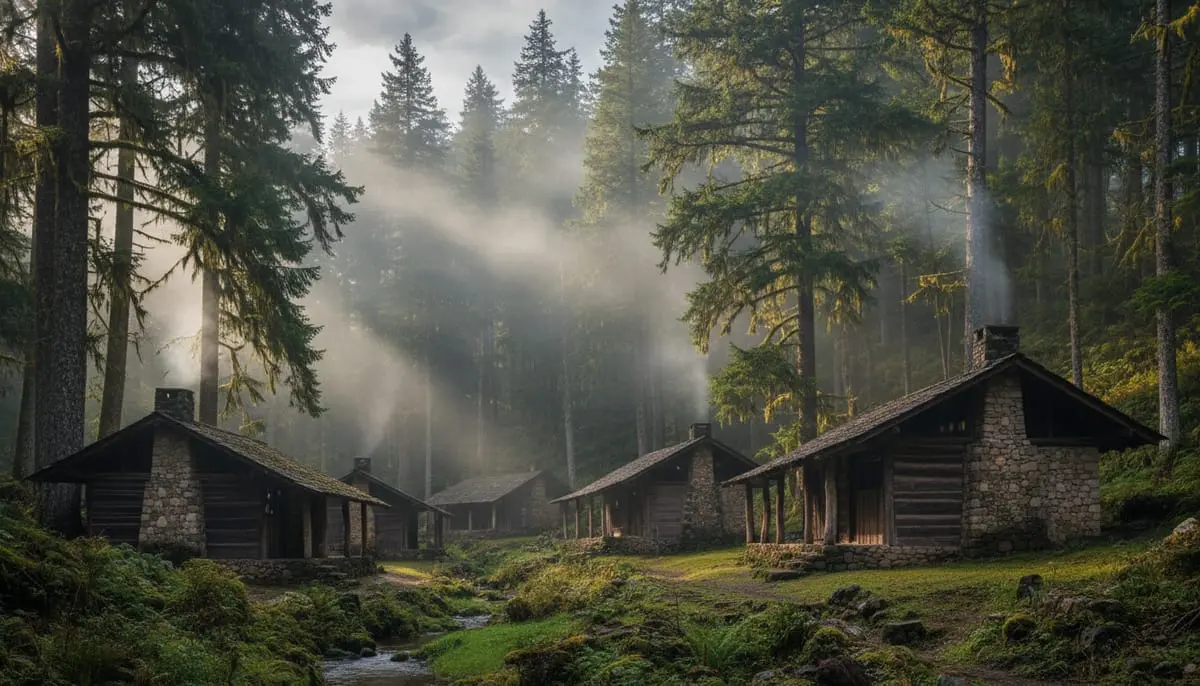
Cabañas Llano Grande Review: Staying in the Cloud Forest
Introduction
San Isidro Llano Grande doesn’t feel like the rest of Mexico. When you step off the bus or finish your hike here, the first thing you notice isn’t the noise—it’s the silence. This is Oaxaca’s “cleanest community,” a title the locals take seriously, located deep in the chilled, high-altitude cloud forest.
Most travelers just pass through on a day hike, but that is a mistake. Staying overnight means waking up above the cloud line, smelling the pine resin in the cold morning air, and watching the sunrise over the Sierra Norte without the crowds. However, it’s not a luxury resort. You are trading room service for wood fires and silence.
This review covers exactly what to expect regarding cabin warmth, the strict dining schedules, and how to navigate the logistics of this remote outpost. If you are mapping out your full trek, consider this a key stop on the Ultimate Guide to Hiking the Pueblos Mancomunados: Oaxaca’s Cloud Forest Circuit.
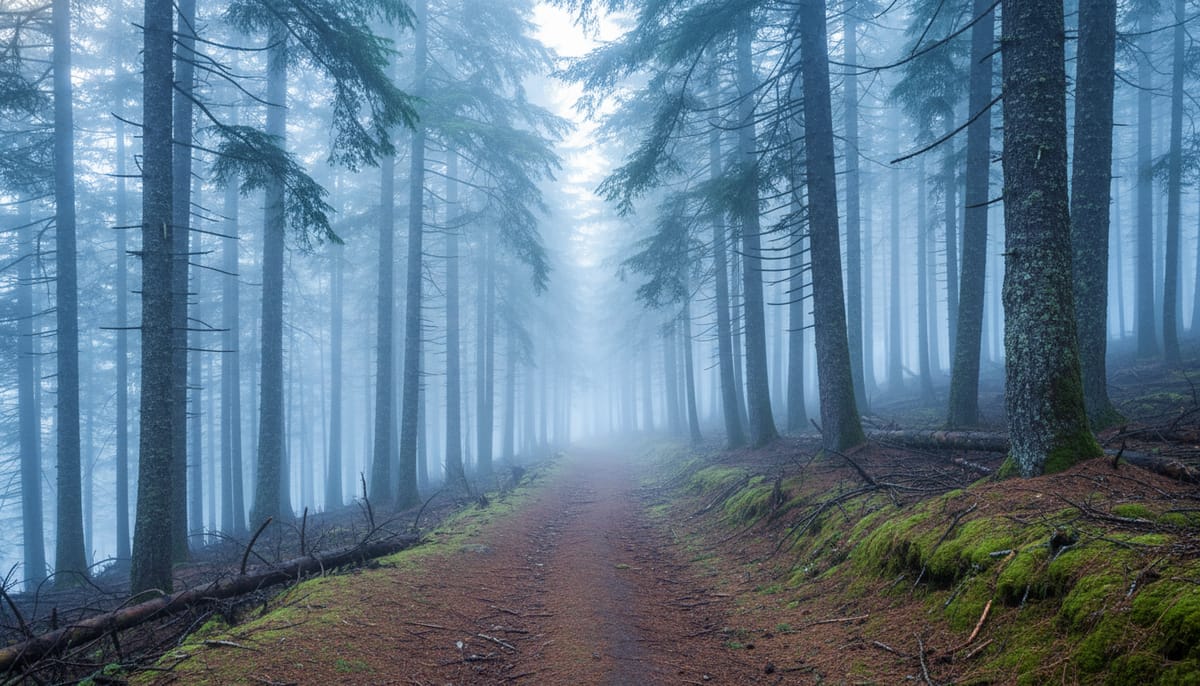
Location & Atmosphere: The San Isidro Difference
The most common mistake travelers make is assuming all the Pueblos Mancomunados are the same. They aren’t. San Isidro Llano Grande sits at approximately 3,200 meters (10,500 feet) above sea level. This is significantly higher than its neighbor, the subject of our Cuajimoloyas Travel Guide, and you will feel the difference in the air.
The landscape shifts here. The oak-pine mix gives way to towering Oyamel (Fir) trees, similar to the sanctuary forests of the Monarch butterflies. According to the geo-data from Expediciones Sierra Norte, you should expect temperatures to be 10–15°F colder than in Oaxaca City. It gets properly cold at night.
The village is famous for its cleanliness. Local laws prohibit littering, and unlike most towns, you won’t find trash cans on street corners. The community operates on a strict “pack it in, pack it out” zero-waste philosophy. If you bring wrappers or bottles, you are carrying them back to the city with you.
The other defining feature is the sound—or lack of it. At night, it is dead silent. If absolute quiet makes you nervous, or if the wind howling through the tall firs keeps you up, bring a pair of earplugs.
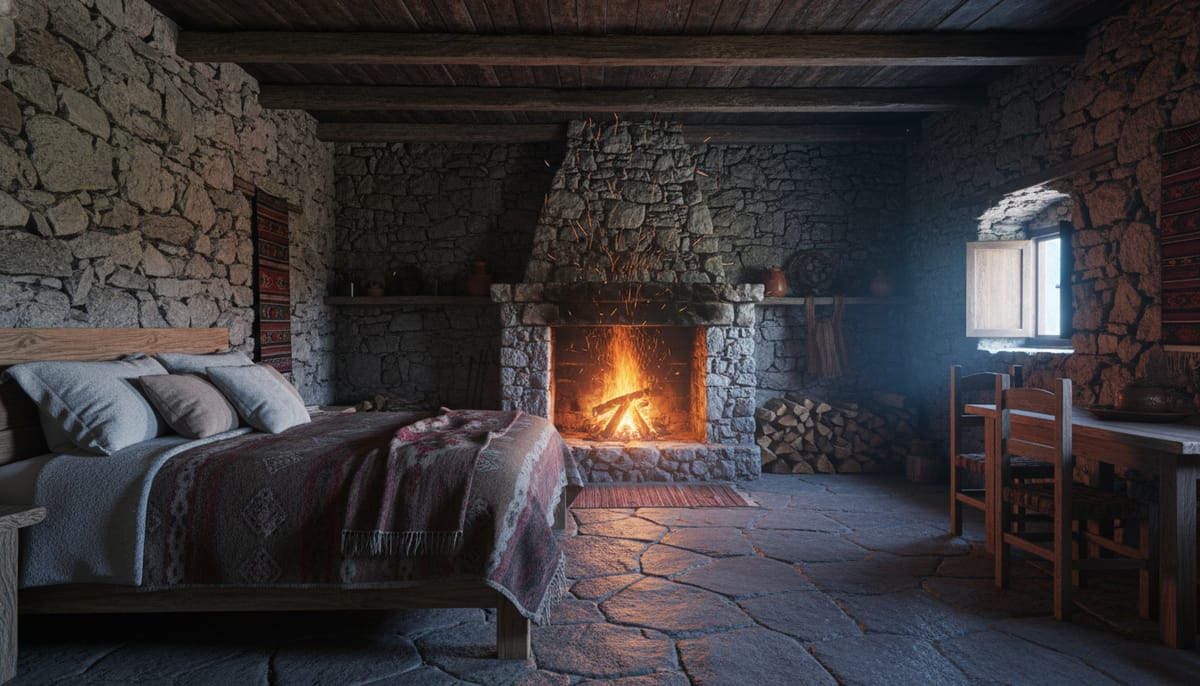
Inside the Cabins: Amenities & Comfort
These are ecotourism cabins, not hotels. You are paying for the location and the charm, not 5-star hardware. The rooms generally come in two setups: bunk beds for hiking groups or private doubles with ensuite bathrooms. While the vibe is consistently rustic, the facilities here are comparable to other community-run cabins in the Sierra Norte at similar elevations.
The Heating Situation
This is the critical part of your stay. There is no central heating. The cold permeates the stone walls quickly once the sun sets.
- The Fireplace: Every cabin has a fireplace. Usually, the first bundle of firewood is included in your room rate.
- The Cost of Warmth: If you want to keep the fire going all night (and you will), you need to buy extra wood. Expect to pay 50–80 MXN per bundle, and you must pay in cash.
Water and Showers
The water systems use solar heaters. This dictates your schedule.
- Shower Strategy: Take your shower immediately when you arrive in the afternoon. The water is hot then. By morning, the tanks have lost their heat to the freezing mountain air, and showers can be punishingly cold.
Power
Electricity is available but limited. Outlets are scarce—often just one per room—and power surges occur. Don’t expect to charge a laptop, a camera, and two phones simultaneously.
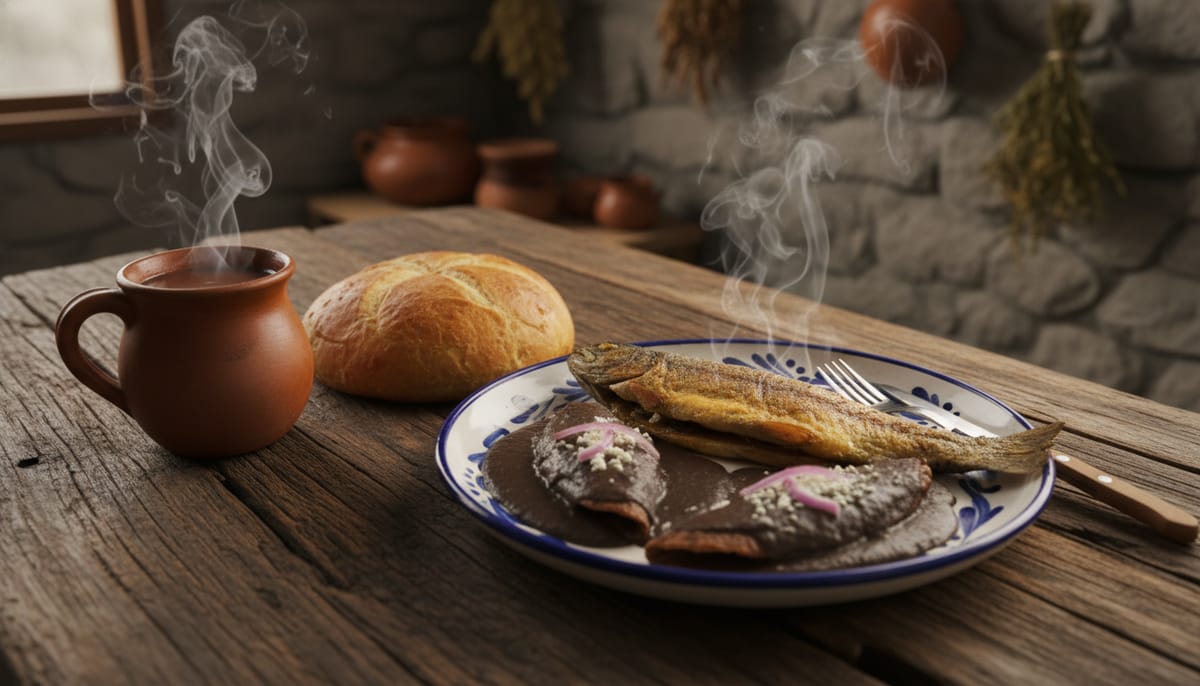
Dining at the Comedor Regional
Do not treat the village kitchen like a city restaurant. The Comedor operates on village time and is run by local families on a rotation.
The “Deadline” You must order your dinner by 5:00 or 6:00 PM. The staff are locals who commute back to their homes; they do not stay late for stragglers. If you arrive at 8:00 PM expecting to order food, you will go hungry.
What to Eat The menu is small, fresh, and local.
- Trucha (Trout): Often raised in local catchments, this is the specialty.
- Enfrijoladas: Simple, heavy, and perfect for the cold.
Insider Tip: Ask for “Pan de Yema” with a cup of hot chocolate. The bread here is denser than the airy versions in Oaxaca City, making it ideal for dipping.
If you are a fungi enthusiast, you might find the options here simpler than in the “Mushroom Capital.” Mushroom lovers should consult the Cuajimoloyas Travel Guide to see where the fierce local competition regarding fungi really happens. The mushrooms here are prepared similarly to the Traditional Sopa de Hongos Recipe suited for the cold weather—hearty and simple.
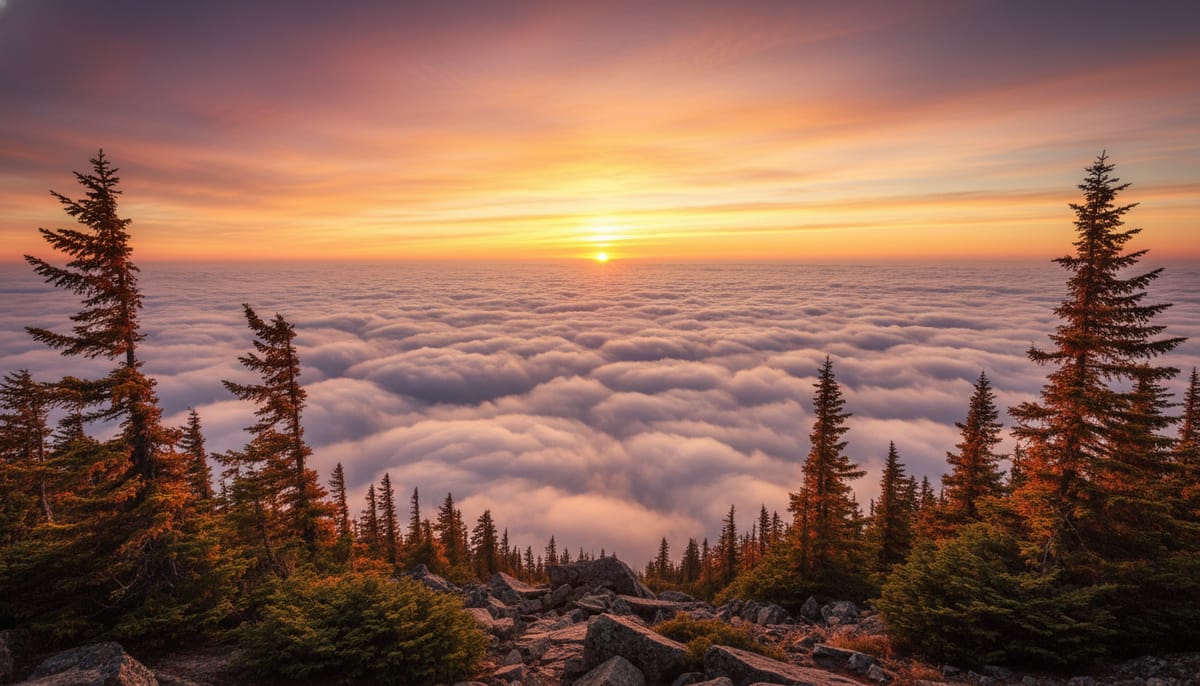
Things to Do Near the Cabins
You don’t come here just to sleep. The high altitude provides some of the best outdoor activities in the entire circuit.
Piedra Larga Hike
This is the flagship hike of the area. The trail takes you through protected fir forests to a viewpoint where, on a clear day, you can see the Pico de Orizaba.
- Note: This is not a self-guided walk. You are required to hire a local community guide from the admin office (approx. 200–300 MXN per group). It supports the local economy and ensures you don’t get lost in the dense forest.
Mountain Biking
Llano Grande is a hidden hub for mountain biking. Unlike other villages where rental equipment is questionable, the administration office here often maintains a fleet of decent hardtail bikes for rent.
The Sunset Mirador
If your legs are shot from hiking, ask a guide for the “Sunset Mirador” walk. It’s shorter than Piedra Larga and offers a specific vantage point where you can often see the clouds rolling beneath the village level.
Visit Ancient Sites
For hikers interested in combining these nature trails with ancient Zapotec history, the walking route toward Santa Catarina Lachatao via the Latuvi to Lachatao hike reveals the mysterious Cerro del Jaguar.
Many hikers use this village as a base before trekking toward the thrill of braving the Benito Juárez Suspension Bridge, which is a solid day-hike away.
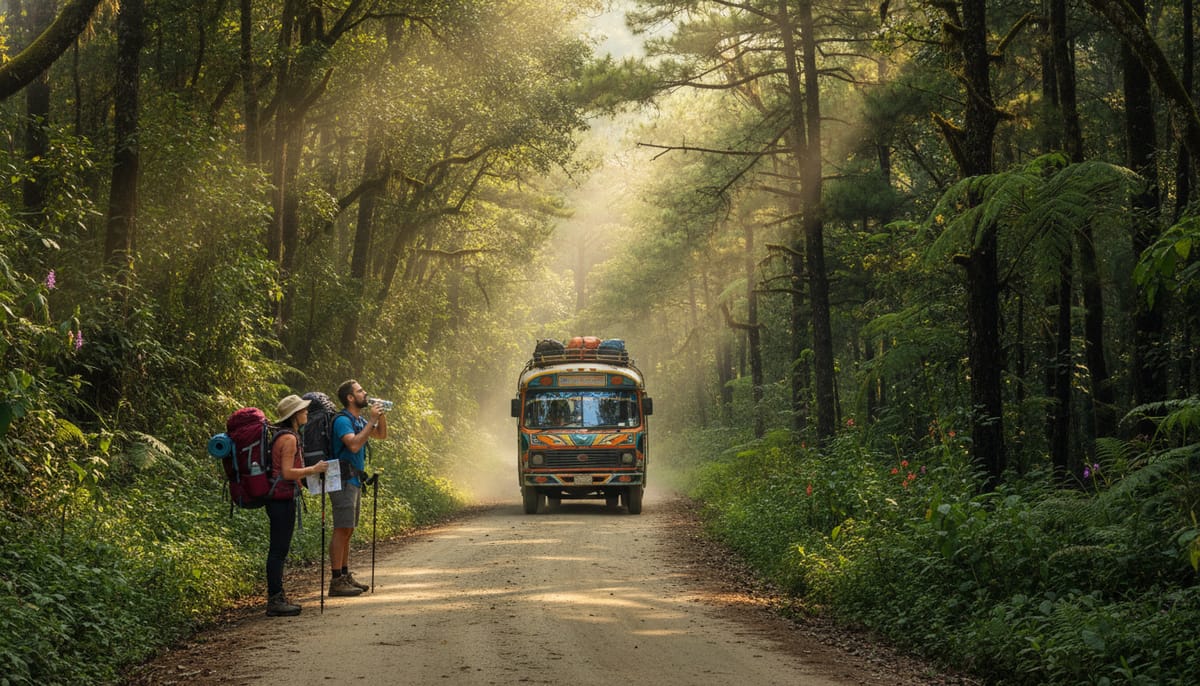
Booking & Logistics: Are There Other Hotels?
There are no commercial hotels in San Isidro Llano Grande. The cabins are a community monopoly, which keeps prices fair and the impact on nature low. If you require a town with more reliable infrastructure and standard hotel amenities, you might look into the things to do in Capulálpam de Méndez instead.
How to Book
You cannot book these on standard hotel apps easily. You have two main options:
- Direct Booking: Visit the Expediciones Sierra Norte office in Oaxaca City at Calle M. Bravo 210, Centro. Or contact them via WhatsApp at +52 951 514 8271.
- Prices: Expect to pay between 600 and 1000 MXN per night for a cabin. You must bring cash for the room balance and any firewood or food.
Getting There
Autobuses Comunitarios leave from the chaotic bus yard near the Central de Abastos in Oaxaca City. The bus usually departs around 4:00 PM, but schedules change seasonally. Always verify the time at the Sierra Norte office before you head to the station.
Affiliate Option: If navigating the colectivo schedules and booking manually sounds stressful, you can book a pre-arranged itinerary. [pueblos mancomunados eco-tour: 2 days hiking & transport - $180 USD approx] – Includes your guide, transport from your hotel, and cabin reservations.
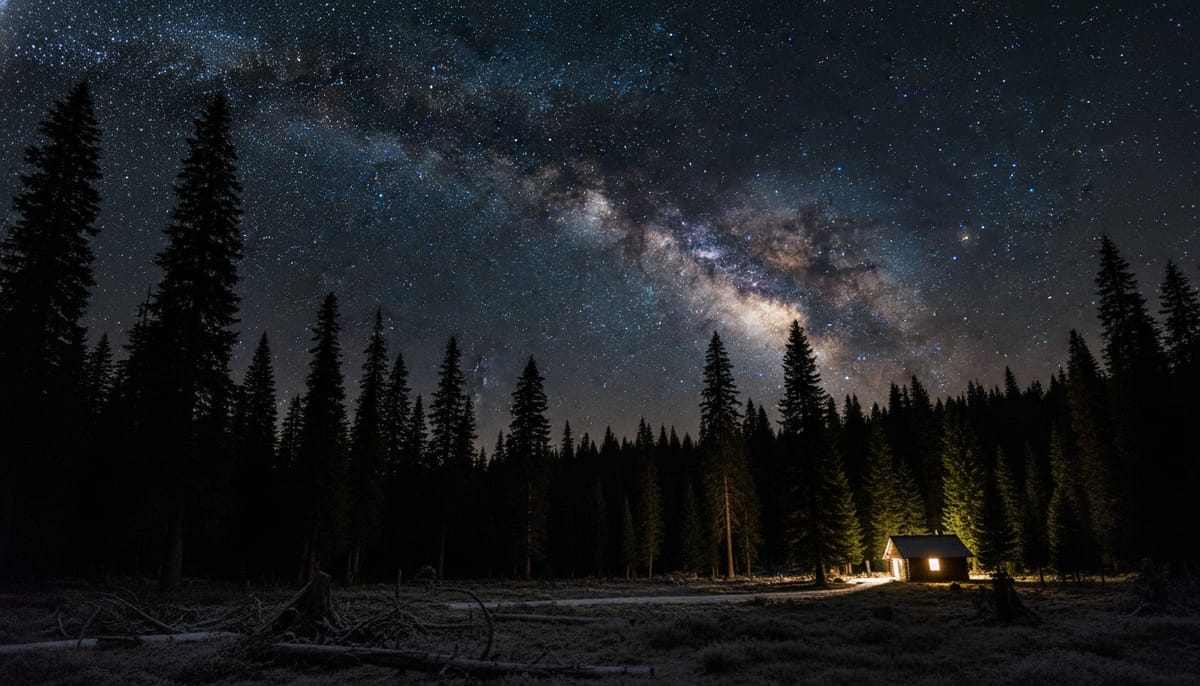
Pros and Cons of Staying in Llano Grande
Pros:
- Immaculate Cleanliness: The zero-waste policy makes this the most pristine village in the Sierra.
- Dark Skies: Rated Class 1-2, making the Milky Way visible to the naked eye.
- Silence: A true escape from the noise of Mexico.
Cons:
- The Cold: Drastically colder than visitors expect. This is miserable for the underprepared.
- Strict Schedules: If you miss the 6:00 PM food deadline, you don’t eat.
- Limited Power: WiFi is spotty and outlets are rare.
Local Tip: Bring a battery power bank. The cold drains phone batteries faster, and with the limited outlets, you don’t want to wake up with a dead phone and miss your dawn hike alarm.
Conclusion
Cabañas Llano Grande offers a rustic, charming escape that feels thousands of miles away from the heat of the valley. It is not for everyone—if you need unlimited hot water and room service, stay in the city. But for nature lovers willing to brave the cold, the silence of the Oyamel forest is unmatched.
Once you’ve thawed out by the morning fire, grab your pack. It’s time to continue the loop via the Ultimate Guide to Hiking the Pueblos Mancomunados: Oaxaca’s Cloud Forest Circuit.